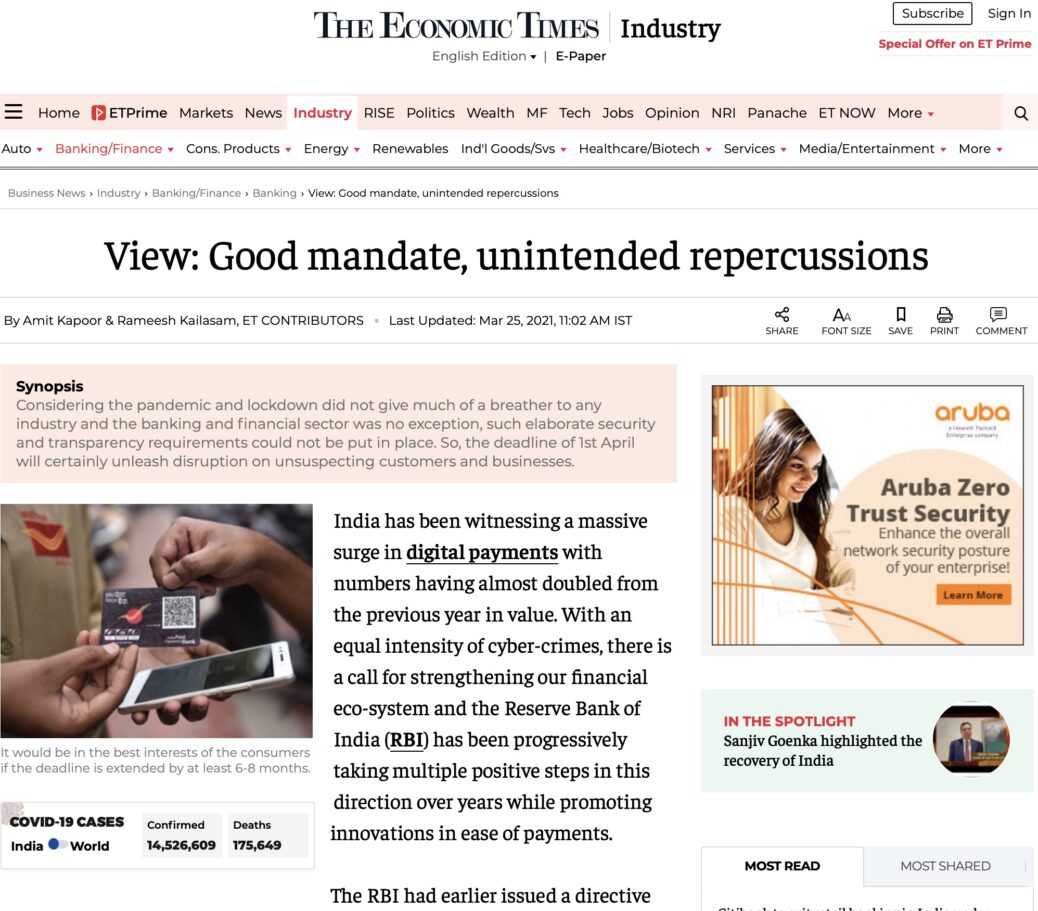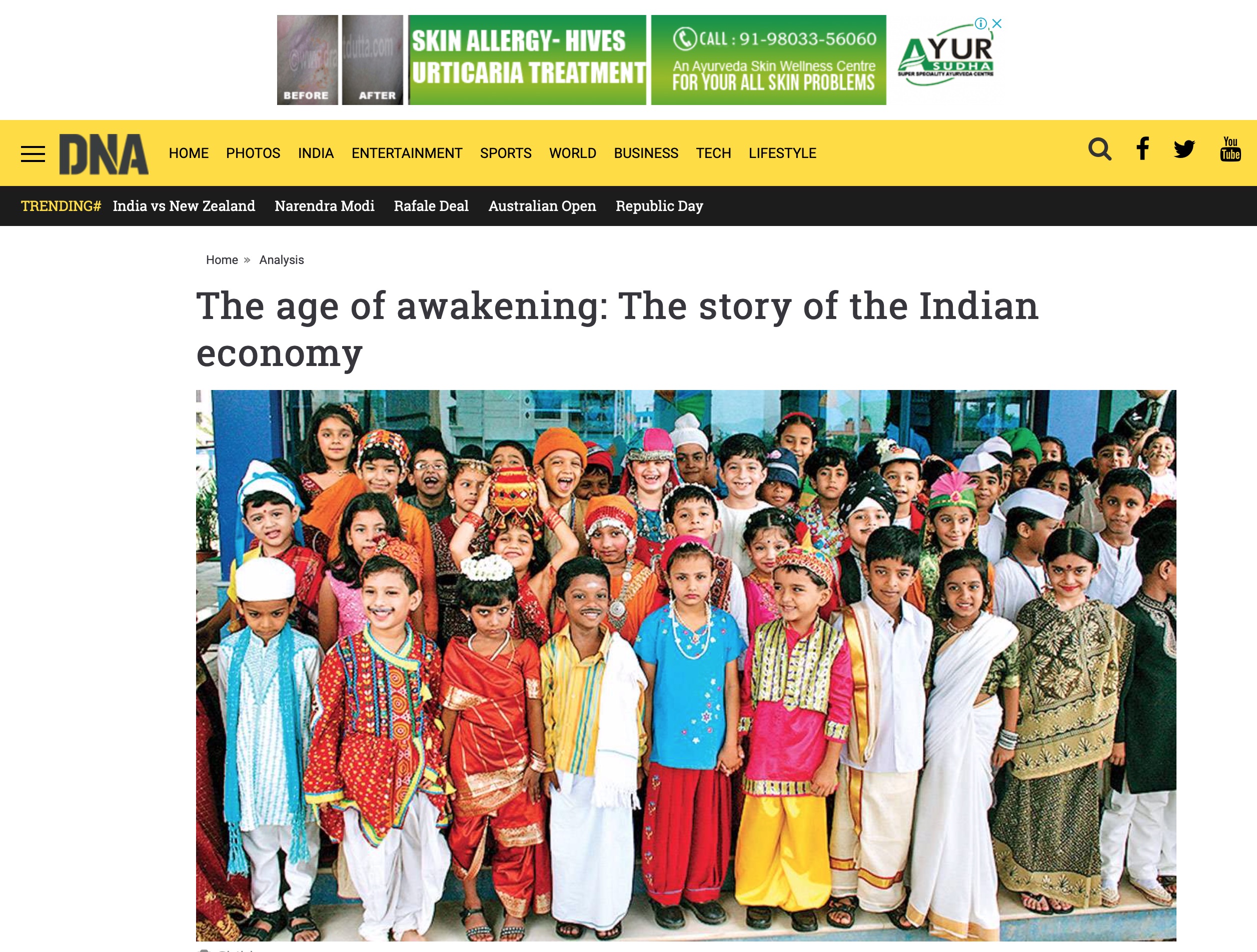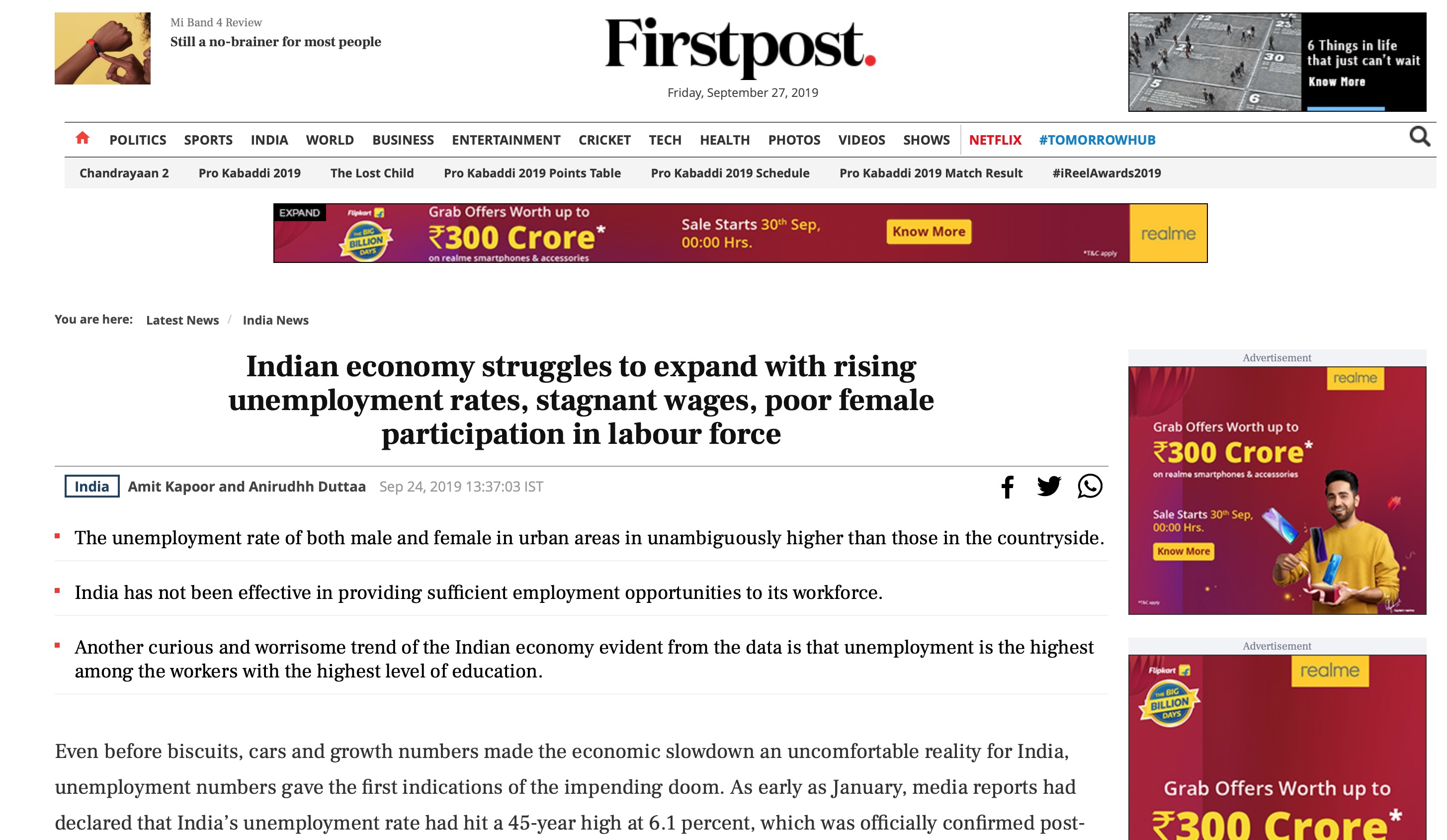Good Mandate, Unintended Repercussions
Amit Kapoor & Rameesh Kailasam
India has been witnessing a massive surge in digital payments with numbers having almost doubled from the previous year in value. With an equal intensity of cyber-crimes, there is a call for strengthening our financial eco-system and the Reserve Bank of India (RBI) has been progressively taking multiple positive steps in this direction over years while promoting innovations in ease of payments.
The RBI had earlier issued a directive on the ‘Processing of e-mandates for recurring transactions’ known as the “e-Mandate Circular” which comes into effect from the 1st April, 2021. For simpler understanding, a mandate is a set of authorisations that a customer provides to their bank/financial payment mediums to automatically debit prescribed amounts on a defined periodic basis either weekly, monthly, quarterly and so on for payments to a set of recipients. e-Mandate is therefore a digital payment service that was initiated by the RBI and the National Payments Corporation of India (NPCI) to enable businesses to collect recurring payments without any human intervention.
Most of the services we undertake today either in B2C or B2B space have a component of recurring payments or subscriptions which need to be automatic as it gives a sense of ease and comfort factor of not having to remember due dates. Recurring payments through e-Mandates are used for various purposes from paying Insurance premiums, loan repayments, investments, SIPs, mutual funds, telephone, utility bills, Online streaming services (OTTs), online retail, e-commerce, online medicines, media subscriptions, email services, SaaS Services, data centres /cloud services, web-conferencing providers, aggregators, start-ups etc.
Prior to e-Mandate, we had the Electronic Clearing Service (ECS) that was more physical in nature besides being slow and cumbersome. e-Mandate came about in 2015 and drastically transformed this into a quick and efficient one besides significantly reducing administrative nightmare for businesses for payment follow ups. This led to huge reduction in administrative costs, increased customer retention, secure services and a hassle free customer experience of timely payments leading to uninterrupted services.
The RBI’s relaxations for recurring transactions with values up to ₹5,000/- did bring huge cheer to the industry. However, the directive also mentioned that “Processing of recurring transactions (domestic or cross-border) using cards/PPIs/ UPI under arrangements / practices not compliant with the aforesaid instructions shall not be continued beyond March 31, 2021”, which sent the banking and financial service providers in a tizzy as the card-dependent financial ecosystem that operated on legacy systems is clearly not ready while wallets, which came later, seem to be compliant, and UPI autopay is still emerging.
The RBI requirements, which the financial ecosystem is seeking time to put in place, involves compliance to the newly prescribed mechanisms that include e-mandate arrangement on cards for recurring transactions for cardholders desirous of opting for e-mandate facility – a one-time registration process with Additional Factor of Authentication (AFA) validation. There are other requirements such as registration, modification processes, options for pre-specified fixed value of recurring transaction, maximum value, customer facilitation measures, pre-transaction notifications at least 24 hours prior to actual charge/debit, SMS/email for receiving the pre-transaction notifications etc. Further requirements include mentioning name of the merchant, transaction amount, date/time of debit, transaction/ e-mandate reference, reason for debit, conditions around withdrawal of e-mandate, grievance/redressal mechanisms and Turn Around Time (TAT).
Considering the pandemic and lockdown did not give much of a breather to any industry and the banking and financial sector was no exception, such elaborate security and transparency requirements could not be put in place. So, the deadline of 1st April will certainly unleash disruption on unsuspecting customers, start-ups, industry, and service providers who might not be aware of the change.
It would be in the best interests of the consumers if the deadline is extended by at least 6-8 months with a strict phase wise monitoring mechanism to ensure implementation. In case status quo remains, unsuspecting consumers would be at the receiving end due to delay by banks and others in the ecosystem. It will also prove counter-productive to the immense governmental efforts made under initiatives like Digital India to ease digital payments and reduce consumer trust in the digital ecosystem.
The article was published with Economic Times on March 25, 2021.






















